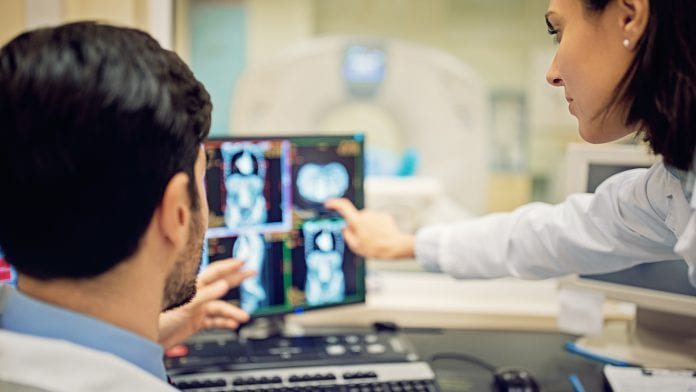
Scientists have developed an artificial intelligence (AI) programme to aid earlier detection of prostate cancer.
Researchers from RMIT University in Melbourne, Australia, in collaboration with clinicians at St Vincent’s Hospital Melbourne, created AI technology to analyse computed tomography (CT) scans for typical signs of prostate cancer. It is hoped that this could allow for incidental detection of the disease during routine scans.
The study has been published in Nature’s Scientific Reports.
Aiding cancer detection during CT scans
Due to the high doses of radiation involved, CT imaging is not suitable for regular cancer screening. However, the new AI solution could allow for cancer detection whenever men have their abdomen or pelvis examined for other, unrelated issues.
Dr Ruwan Tennakoon, from RMIT University, said that, whilst the CT scans were effective at detecting bone and joint issues, even trained radiologists were unable to spot prostate cancers on the images.
“Like training a sniffer dog”
Dr Tennakoon said: “We’ve trained our software to see what the human eye can’t, with the aim of spotting prostate cancer through incidental detection.
“It’s like training a sniffer dog – we can teach the AI to see things that we can’t with our own eyes, in the same way a dog can smell things human noses can’t.”
For the study, the researchers studied CT scans of asymptomatic patients, with and without prostate cancer. The team trained the AI software to detect features of disease in a variety of scans and where exactly to look for them, avoiding the need to manually crop the images.
The AI performed better than radiologists who viewed the same images, detecting cancerous growths in just seconds. In addition, the AI improved with each scan, learning and adapting to read images from different machines to spot even the smallest irregularities.
Professor John Thangarajah, RMIT’s Head of Artificial Intelligence, said the study demonstrated how AI can and should be used to create public good.
“Our health sector needs smarter solutions and AI can help, but we’re only scratching the surface,” he said.
“There’s a lot of good that artificial intelligence can bring to the world, which is our focus at RMIT, and this study forms a big part of that.”
Early intervention for prostate cancer
Dr Mark Page, Head of CT in Diagnostic Imaging at St Vincent’s Hospital Melbourne, said early intervention for prostate cancer was key to a better health outcome.
“Australia doesn’t have a screening programme for prostate cancer but, armed with this technology, we hope to catch cases early in patients who are scanned for other reasons,” he said.
“For example, emergency patients who have CT scans could be simultaneously screened for prostate cancer.
“If we can detect it earlier and refer them to specialist care faster, this could make a significant difference to their prognosis.”
The technology can be applied at scale, potentially integrating with a variety of diagnostic imaging equipment like MRI and DEXA machines – pending further research.
“It was excellent to tap into the AI expertise at RMIT and we look forward to future possibilities for analysing more radiology scans,” Page said.
























